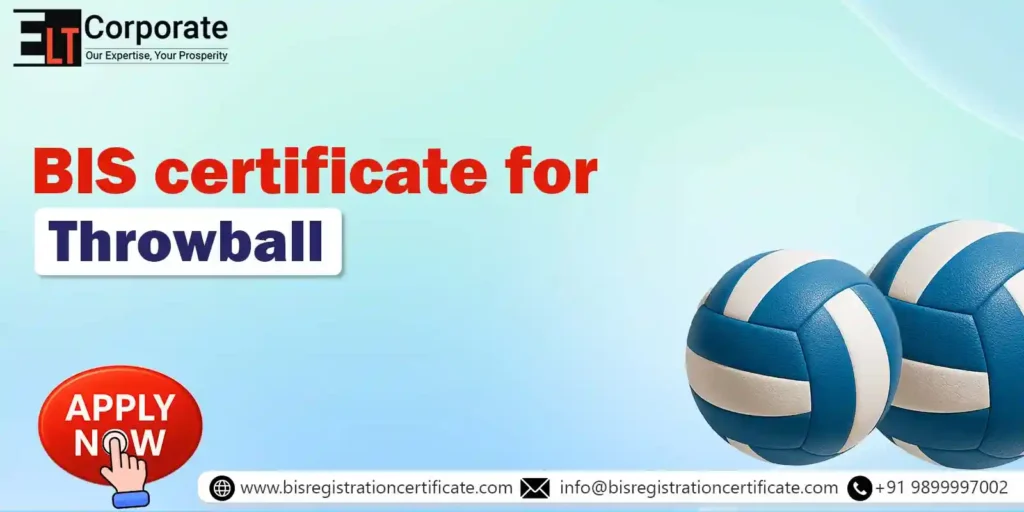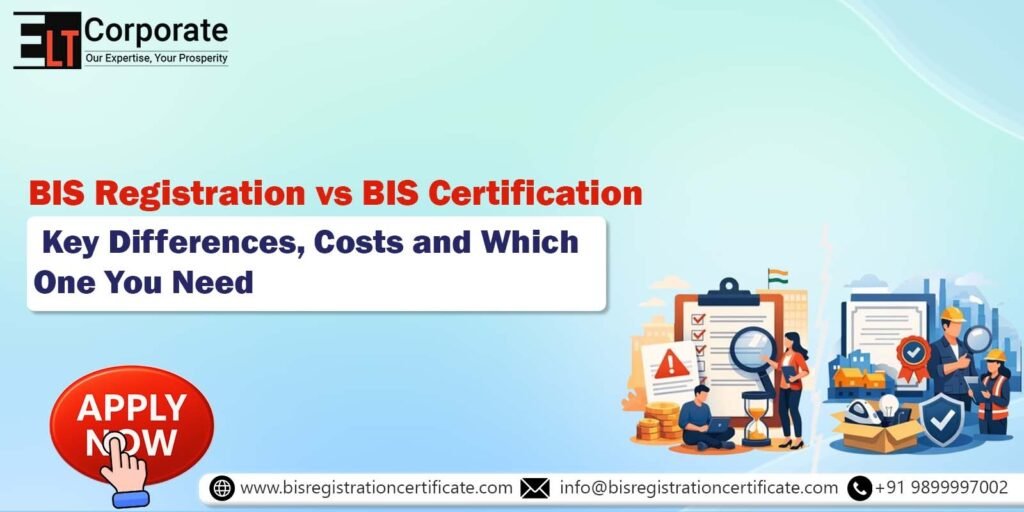Throwball is one of India’s fastest growing team sports – known for its energy, teamwork and spirit. Whether used in schools, sports academies, or professional tournaments, the quality and safety of throwball equipment play a important role in player performance and injury prevention.
To ensure that each ball meets the same quality and safety standards, manufacturers and importers in India are required to obtain a BIS certificate for throwballs from the Bureau of Indian Standards – the national authority for product quality certification.
This certification serves as a symbol of trust, compliance and credibility in the Indian market.
What is a BIS Certificate?
BIS certificate is an official recognition that a product meets the quality and safety standards defined by BIS. Manufacturers who produce throwballs or related sports equipment must comply with the relevant Indian Standard to market their products in India.
- BIS certification assures that:
- The throwball is made of safe and durable materials.
- It meets specific quality and performance standards.
- The product undergoes laboratory testing and periodic inspection.
Read More: Introduction To Bureau Of Indian Standards
Why BIS Certification for Throwball Equipment Is Important
Whether you are manufacturing or importing sporting goods like throwballs, obtaining BIS Certificate for throwballs offers several benefits:
- Compliance Assurance: Verifies that the product adheres to national quality standards.
- Consumer trust: Builds credibility and trust between customers and institutions.
- Market Access: BIS-approved goods are mandatory in some state procurement and school sports tenders.
- Legal protection: Prevents fines and rejection of consignments by regulatory authorities.
- Export Benefits: BIS certification often helps in meeting export documentation requirements.
Applicable Indian Standard for Throwball
While BIS has specific standards for many sporting goods (such as footballs, volleyballs and cricket balls), throwball equipment generally falls into the category of synthetic rubber or sports balls.
Depending on construction and material, relevant Indian standards may include:
| Product | Indian Standard (IS) Code | Description |
| Throwball (synthetic rubber type) | IS 4159:1983 | Specification for synthetic rubber balls used for sports |
| Throwball Net | IS 1760 (Part 2):1974 | Specification for nets used in sports |
| Throwball Post & Accessories | IS 9874:1981 | Standards for steel posts and supporting structures |
Who Needs a BIS Certification for Throwball?
Below, we mentioned who needs BIS certificate for throwball:
- Manufacturers of throwball equipment in India.
- Importers are bringing throwballs or related sporting goods into India.
- Suppliers and traders who wish to use or sell ISI Mark on their products.
If your product category is under mandatory BIS certification, you cannot sell, import or distribute it in the Indian market without a valid BIS license.
Process of Getting BIS Certification for Throwball
Below, we mentioned steps to obtain BIS certificate for throwball
1. Identify the applicable Indian Standard (IS Code):
Determine the right BIS standard for your throwball product.
2. Select Certification Scheme:
ISI Mark Scheme (for domestic manufacturing)
FMCS Scheme (For Foreign Manufacturers)
3. Submit Application to BIS:
Include details of the product, manufacturing unit and supporting documents.
4. Testing in BIS-accredited labs:
Samples are tested as per relevant IS standard to verify the quality parameters.
5. Factory Inspection (if applicable):
BIS officials inspect the manufacturing site to check production efficiency and quality control.
6. Grant of BIS License:
Once the product passes testing and inspection, BIS issues a certificate and allows the use of the ISI mark.
Read More: Process for getting BIS for Certification
Documents Required for BIS Certification for Throwball
The following documents are required to apply for BIS certificate for Throwball products:
- Factory Registration Documents (GST, Enterprise, PAN, etc.)
- Product Technical Specifications and Pictures
- Test reports from BIS-approved laboratories
- quality control manual
- Details of raw materials and suppliers
- Factory Inspection Report (if applicable)
Read More: Documents Required For BIS Registration
Validity and Renewal
BIS certificate is valid for 2 years from the date of issue. It can be renewed for up to 5 years depending on the stability and quality maintenance of the product.
Penalties for Non-Compliance
Selling or distributing throwball equipment without mandatory BIS certification may lead to the following consequences:
- Product Seizure by Authorities
- Penalties and fines under BIS Act, 2016
- Suspension or cancellation of manufacturing license
Therefore, compliance is not only a legal requirement but also a responsible business practice.
How ELT Corporate Can Help
At ELT Corporate, we assist manufacturers, importers and traders in obtaining BIS certification for throwballs and other sports equipment.
Our team of compliance experts ensures that:
- accurate is code identification
- Complete documentation support
- Testing coordination with BIS-approved laboratories
- End-to-end liaison with BIS officials till license approval
Conclusion
BIS certificate for throwballs is a hallmark of trust and safety. It protects the players, increases the credibility of the product and empowers the manufacturers to increase their presence in the market.
By ensuring compliance with BIS standards, you are not only meeting legal norms – you are promoting a quality sporting culture in India.
What is BIS Certification for Throwball?
BIS Certification ensures that throwballs meet the quality and safety standards set by BIS for sports equipment.
Why is BIS Certification important for Throwball manufacturers?
It helps ensure product reliability, builds customer trust, and allows legal sale in the Indian market.
Which standard applies to Throwball under BIS?
The relevant IS standard specifies material, size, and performance requirements for Throwballs.









